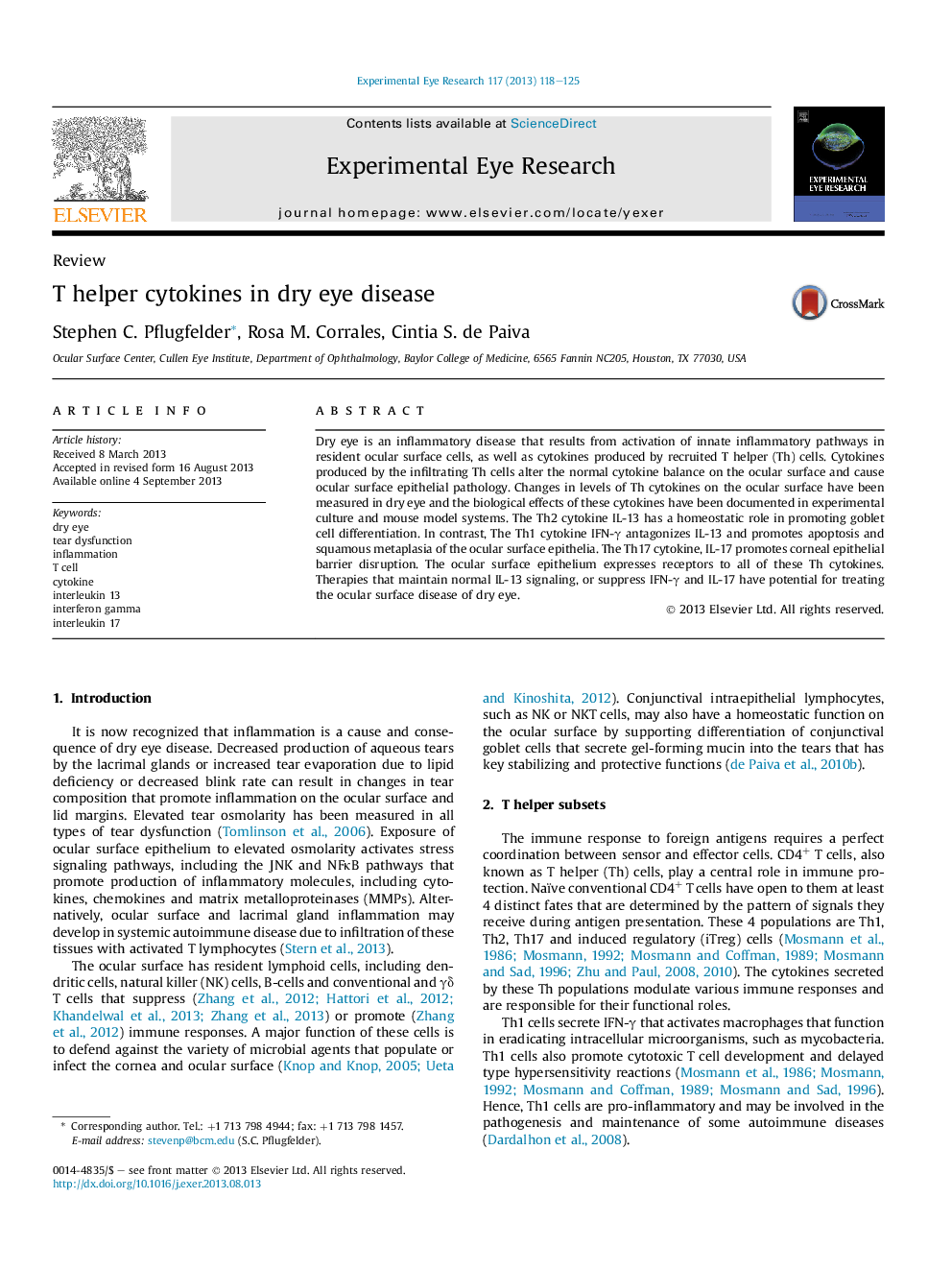| Article ID | Journal | Published Year | Pages | File Type |
|---|---|---|---|---|
| 4011184 | Experimental Eye Research | 2013 | 8 Pages |
•The Th2 cytokine IL-13 has a homeostatic role in conjunctival mucus production.•Cytokines produced by T helper cells in dry eye alter the cytokine balance.•Interleukin 17 stimulates MMP production and causes corneal epithelial disease.•The Th1 cytokine IFN-γ causes apoptosis and conjunctival goblet cell loss.
Dry eye is an inflammatory disease that results from activation of innate inflammatory pathways in resident ocular surface cells, as well as cytokines produced by recruited T helper (Th) cells. Cytokines produced by the infiltrating Th cells alter the normal cytokine balance on the ocular surface and cause ocular surface epithelial pathology. Changes in levels of Th cytokines on the ocular surface have been measured in dry eye and the biological effects of these cytokines have been documented in experimental culture and mouse model systems. The Th2 cytokine IL-13 has a homeostatic role in promoting goblet cell differentiation. In contrast, The Th1 cytokine IFN-γ antagonizes IL-13 and promotes apoptosis and squamous metaplasia of the ocular surface epithelia. The Th17 cytokine, IL-17 promotes corneal epithelial barrier disruption. The ocular surface epithelium expresses receptors to all of these Th cytokines. Therapies that maintain normal IL-13 signaling, or suppress IFN-γ and IL-17 have potential for treating the ocular surface disease of dry eye.
